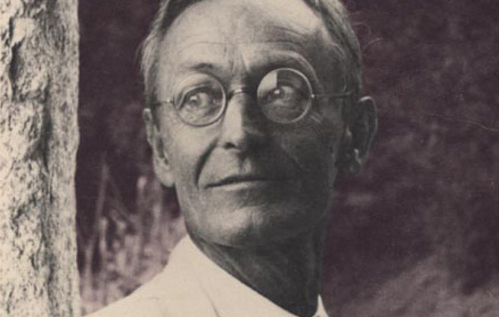
Herman Hesse and Thomas Mann lived and wrote in Germany during the same time, but shared little else; the two could not be further apart in writing style and temperament. On what is called the “Weimar Dioscuri,” Mann fell into the embedded ironies of Goethe, while Hesse found himself sympathetic to the unbridled romanticism of Schiller. Mann moved further westward with an ever-increasing popularity and profile, while Hesse retreated further into the east. Nevertheless, the two maintained an avid exchange of letters through the years in what could be considered one of the most important literary correspondences of the twentieth century.
January 1953
Dear Thomas Mann,
Your kind letter has done me a world of good; I am grateful for it.
To know that a new story of yours is near completion is a joy. It gives me something to look forward to again and to be curious about.
There is something strange and mysterious about our feeling (for I certainly feel the same way) that our work is not the “real thing,” that it cannot be counted among the absolutely valid, authentic, and enduring classics. In part, this feeling has an objective basis, the fact that the great, authentic classics have withstood the test that still lies ahead of living writers. They have survived the period, in some cases rather a long one, when the world was sick of them and celebrating new stars, and have risen again from the tomb and oblivion.
But I think there is something more to it. Among artists as among other men, there is a type who have the good fortune and the gall to believe in themselves and be proud of themselves. Men such as Benvenuto Cellini for instance, perhaps also Hebbel, Victor Hugo, and even G. Hauptmann are of this type, as well as many lesser men who, in their pathetic self-confidence, anticipate a greatness and a permanence that are not their due. Whatever else may be said of us, we are not of this type.
I hope you will soon find ease and comfort in your surroundings. I am happier in my thoughts of you now that I know you are in Erlenbach. I have sipped your beautiful ode to transience like good wine.
H. H.
Notes
Benvenuto Cellini (1500-1571), Italian sculptor, painter, and memoirist; Friedrich Hebbel (1813—1863), a dramatist from northern Germany; Gerhart Hauptmann (1862-1946), German playwrite, recipient of the Nobel Prize in literature in 1912.
FURTHER READING
Mann’s essay on Goethe and Tolstoy, which Hesse paid particular attention to.
The two authors’ respective relationships with the Nobel Committee.
Hesse on careers and freedom.
Mann’s use of history and myth.


